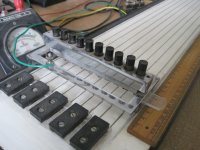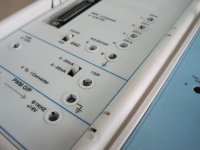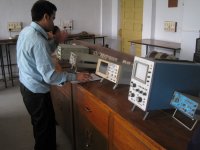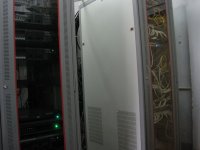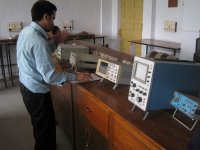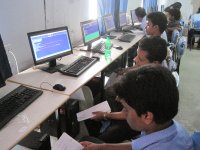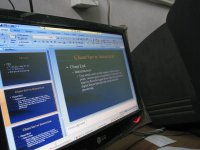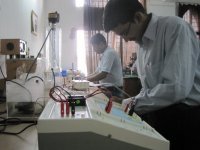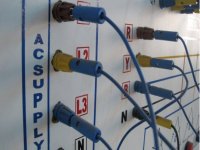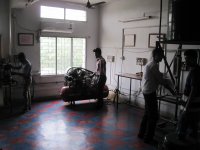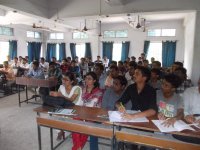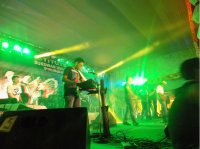Department of Electrical Engineering
Institute▼
Academics▼
Student▼
Notice (Advertisement)
Notice Regarding Extension of submission of Application Form for ME Admission (Published on 06.08.2025)
Notice for Admission in ME courses-2025 (Published on 02.07.2025)
ME Admission Form & Information-2025 (Published on 02.07.2025)
Notice (Examination)
NewCGPA format UG 2017-21 onwards
NewNotification Regarding Sessional Odd Sem Exam of 2025-26 for BE 3rd Sem (Published on 19.02.2026)
NewNotice Regarding Exam Form Fill up (BE 3rd Semester Lateral candidates) (Published on 12.02.2026)
New3rd Sem Exam Routine Odd Sem 2025-26(Published on 09.02.2026)
NewProgramme Schedule for BE and ME Odd Sem Theoretical and Sessional Exam 2025-26(Published on 29.01.2026)
Notification Regarding Sessional Exam for BE 3rd Sem 2025-26(Published on 27.01.2026)
[Special Review Result List Exam - 2024-25] B.E - III Semester Exam - 2024-25(Published on 21.01.2026)
[Special Review Result List Exam - 2024-25] BE - IV Semester Exam - 2024-25(Published on 21.01.2026)
[Special Review Result List Exam - 2024-25] M.E - I Semester Exam - 2024-25(Published on 21.01.2026)
New Notification Regarding Practical Examination 2025-26(Published on 20.01.2026)
Notification for Examination Form Fill up (Odd Semester 2025-26)(Published on 20.01.2026)

Departmental Profile
Electrical engineering, the discipline that employs the largest number of engineers, covers everything related to electrical machines & devices, systems, and the use of electricity. Contemporary electrical engineering is a broad discipline that encompasses a wide range of activities. A common theme is the use of electricity and electromagnetism for the generation, transmission, processing, storage, conversion, and control of information and energy. An equally important aspect is the human interface and the role of individuals as the sources and recipients of information. Electrical engineers work on power plants, computers, and other electrical devices. Electrical engineers are designing the dashboard computers that will monitor engine functions on automobiles of the future. In every bit of our modern life electrical engineers contributes with their innovation and vision. Right from hair driers to power generating systems they have plethora of work opportunities.
The need for increasingly faster and more sophisticated methods of handling information poses a major challenge to the present electrical engineer. New materials, devices, circuits, systems, and networks are needed to build the advanced communications and information-handling systems of the future. Previous innovations in electrical engineering have had a dramatic impact on the way in which we work and live: the transistor, integrated circuits, computers, radio and television, satellite transmission systems, lasers, fiber optic transmission systems, and medical electronics. Their efforts toward what is rapidly becoming an all-purpose technical degree prepare them for careers in telecommunication, medicine, sales, and business management and in nearly every field of engineering.
The department started undergraduate course in Electrical Engineering in 2008.Since inception the department is working continuously towards contributing novel and innovative ideas in Electrical Engineering to keep pace with the latest technological developments. The faculty of the Electrical Engineering Department at UIT is dedicated to continued innovation through its program of academic instruction and research. Our undergraduate academic program is designed to prepare the student for a career in industry or business by providing him or her with a thorough foundation of the fundamental concepts and analytical tools of contemporary electrical engineering.
Programs
At present department is offering one undergraduate course in Electrical Engineering.
Faculty members
| Faculty Name | Designation | Academic Qualifications | Joined UIT, BU |
|---|---|---|---|
| Dr. Kallol Roy | Assistant Professor | M.E, PhD | |
| Dr. Biplab Satpati | Assistant Professor | M.E, PhD | |
| Mr. Rajib Sadhu | Assistant Professor | M.Tech | |
| Dr. Soumya Das | Assistant Professor | M.E, PhD |
Supporting Staff
| Name | Designation | Academic Qualifications | Date of Joining |
|---|---|---|---|
| Mr. Sanjay Koner | Junior Technical Assistant | Diploma in Electrical Engg. | 22.9.2009 |
| Md. Hasanujjaman | Junior Technical Assistant | B.Tech (EE) | 1.6.2010 |
Laboratories
Electrical Machines Laboratory, Power System Laboratory ,Relay and protection Laboratory, Control Systems Laboratory, Power Electronics & Drives Laboratory, Microprocessor and Micro-controller Laboratory, Circuits and Measurements Laboratory, Basic Electrical Engineering
Laboratory, Project Laboratory equipped with process instruments, data acquisition systems, PLC ,DCS&SCADA.
Electrical Machines Laboratory, Power System Laboratory ,Relay and protection Laboratory, Control Systems Laboratory, Power Electronics & Drives Laboratory, Microprocessor and Micro-controller Laboratory, Circuits and Measurements Laboratory, Basic Electrical Engineering Laboratory, Project Laboratory equipped with process instruments, data acquisition systems, PLC ,DCS&SCADA.